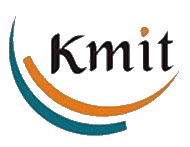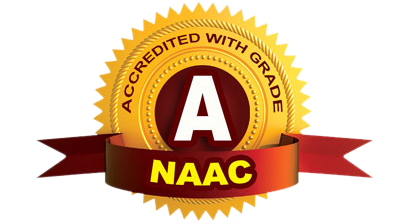International Finishing School
ABOUT IFS:
The dynamic nature of technological evolution combined with increased global competition have significantly increased the need for a skilled workforce. Education systems across the world while providing learners with a strong foundation, oft are out of step with the everchanging demands of today’s industry. KMIT’s iFS program aims to bridge the global industry-academia divide and equip learners with skills needed to succeed in today’s ever competitive software industry wherever in the world they might be.
International Finishing School (IFS) is a program that offers a suite of technical skills trainings offered by Keshav Memorial Institute of Technology (KMIT), Hyderabad, India to a corporate and an international audience. The trainings are technology-driven and accommodate learners who are beginners, learners looking for jobs/to upskill, and learners who are focused on achieving a specialized education in computer science.
THE PROGRAMS:
Summer of Tech (SoT)
This is a 5-week (75 hours), technology-centric summer program. The program aims to introduce young minds, in a fun and engaging way, to emerging technologies and stimulate in them the desire to further explore potential future careers in these fields. There is plenty of hands-on coding in this program. Participants need not have prior coding experience.
Full Stack Developer (FSD) - Javascript Program
KMIT iFS’ Full Stack Developer (FSD) - Javascript Program is a comprehensive bootcamp designed to equip participants with the skills and knowledge required to excel in the dynamic field of Full Stack Development. This intensive program spans over 400 hours and encompasses a range of modules tailored to provide a holistic understanding of Full Stack Development using JavaScript.
Pre-requisite Python Course: Before beginning the FSD program, participants undergo a 48-hour free course in Python. This foundational course serves as a precursor, ensuring that participants possess essential programming skills. Successful completion of the Python module with a minimum score of 60% is mandatory for enrollment in the Full Stack
OUTCOMES OF INTERNATIONAL FINISHING SCHOOL:
-
Skilled Workforce:
Graduates of the iFS program would possess enhanced technical skills, making them valuable assets to both domestic and international companies operating in the software industry.
-
Job Placement:
Learners who complete the program would be better equipped to secure employment in the software industry, whether as beginners looking for entry-level positions or as experienced professionals seeking to upskill.
-
International Recognition:
The program's focus on accommodating learners from diverse backgrounds and its emphasis on global industry standards could lead to international recognition and attract students from around the world.
-
Industry-Academia Collaboration:
By bridging the gap between industry demands and academic curriculum, the iFS program could foster stronger collaboration between KMIT and software companies, leading to more relevant educational offerings and increased research opportunities.
-
Technological Advancements:
The program's emphasis on technology-driven training could contribute to advancements in software development practices, leading to innovation within the industry.
-
Economic Growth:
A highly skilled workforce can contribute to economic growth by attracting investment, fostering entrepreneurship, and driving innovation in the software sector, both locally and globally.
More outcomes involves competitive and adaptable workforce, increased industry-academia collaboration, and positive contributions to the software industry's growth and development.
MODE OF DELIVERY:
All the programs involve live, instructor-led classes with TA support. KMIT uses an in-house teaching platform Telescope to not just deliver the classes but also to monitor and track attendance, give and evaluate assignments, have Students compile and execute programmes, conduct and evaluate tests and assess student performance.
Some of the features of Telescope are:
a customized version of Moodle, an open-source learning management system provided by Google.
provides an option of two different modules. After each programming class, students are required to take a quiz which is a collection of multiple-choice questions. Once they submit the quiz, they are presented with a form where they have guidelines to write code (program Eg: JAVA, C) pertaining to the class held.
usually three programs given to the students as a part of the test. If the student is a slow learner, he/ she might be able to work on a single program. The fast learners may go to the third program. Google’s platform Moodle by itself doesn’t have the code compilation technique but Telescope has been built to meet training needs and have added code compilation techniques for Javascript, Python, JAVA, C and few other programming languages.
CLASS TIMINGS:
All the programs are scheduled in the client time zone. This means we work in two slots
| Client: | Procareer Academy, LA | ||
|---|---|---|---|
| Sno | Program | Timings | |
| Summer | Winter | ||
| 1 | Python | 6:30 a.m. to 10:30 a.m IST / 6:00 p.m. to 10:00 p.m. PST | 7:30 a.m. to 11:30 a.m IST/ 6:00 p.m. to 10:00 p.m. PST |
| 2 | Full Stack Developer (FSD) | ||
| Client: | Blue Sky Coding | ||
|---|---|---|---|
| Sno | Program | Timings | |
| Summer | Winter | ||
| 1 | Summer of Tech (SoT) | 1:30 p.m. to 4:30 p.m. IST/ 8:00 a.m. to 11:00 a.m. GMT | |
CONCLUSION:
KMIT brings with it a rich experience of designing customized technical trainings with a proven track record of success. The suite of live, instructor-led e-trainings KMIT has developed offer the best of both worlds – digital innovation as well as industry know-how. Furthermore, the training pedagogy places emphasis on experiential learning and is the perfect platform for learning new technologies and/or upgrading basic skills.






